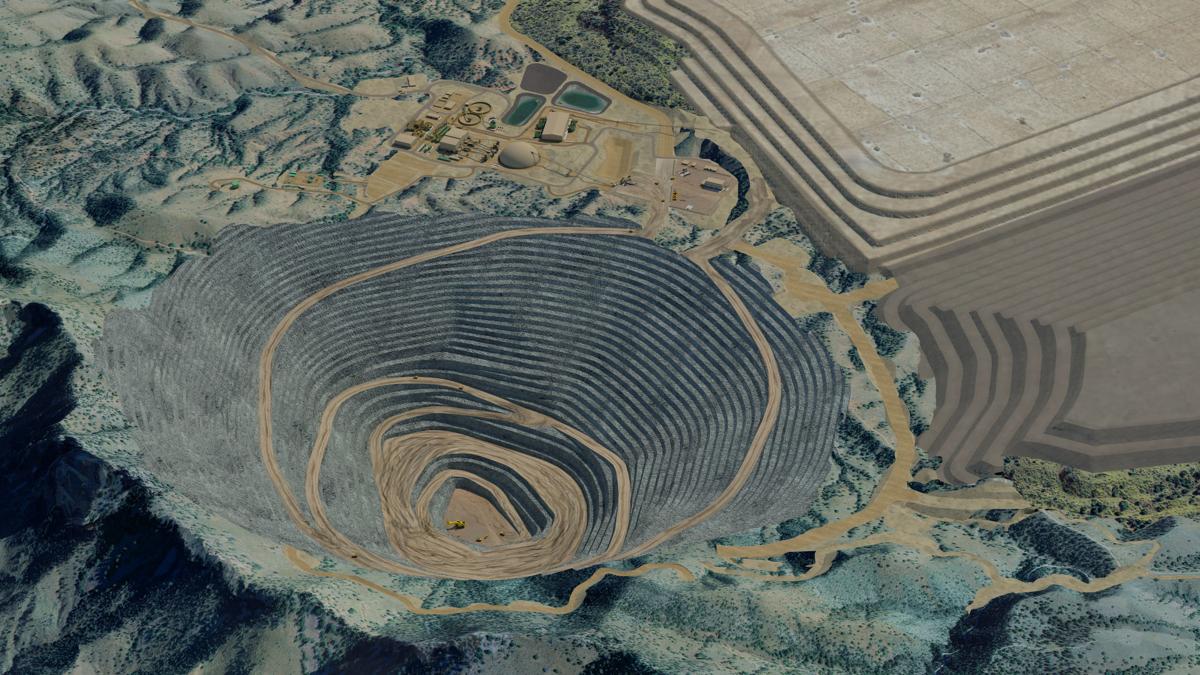In his second ruling against the proposed Rosemont Mine, a federal judge found Monday that the U.S. Fish and Wildlife Service didn’t adequately protect imperiled species including the jaguar from the mine’s impacts.
U.S. District Judge James Soto ordered the wildlife service to redo three parts of its 2016 biological opinion that helped clear the way for final approval of the $1.9 billion mine project in the Santa Rita Mountains southeast of Tucson.
Also, Soto threw out a related challenge that the mining company had filed seeking to overturn the wildlife service’s designation of the mine site as jaguar critical habitat.
Mine construction has been stopped since July 31, 2019, when Soto overturned the Forest Service’s final approval of the mine project on other grounds. The latest decision puts additional legal burdens on efforts by the mining company and the federal government — already begun — to overturn Soto’s ruling halting mine construction at the 9th Circuit Court of Appeals.
The mining company, Hudbay Minerals Inc., issued a statement Monday evening saying the ruling came as no surprise, given Soto’s earlier rulings against the project. It hasn't yet said if it will appeal this ruling, as it has appealed Soto's earlier ruling.
“While we respect the court’s authority to remand the analysis and findings back to the agencies for further review, Hudbay believes this is unnecessary and remains committed to advancing the project which will benefit the region as a critical economic and employment driver,” Hudbay’s statement said. “The Forest Service approved the Rosemont project after more than 11 years of careful review and study by 17 cooperating agencies.”
Coronado National Forest Supervisor Kerwin Dewberry said a decision on whether to appeal the latest ruling will be made “at a higher level than the local forest.”
The Forest Service and the wildlife service were named as defendants in the lawsuit filed under the Endangered Species Act by the Tucson-based Center for Biological Diversity that led to Monday’s ruling. The wildlife service declined to comment on the ruling.
Marc Fink, an attorney for the Center for Biological Diversity, praised Soto’s ruling.
“This is a wonderful win for the Santa Ritas’ rare and beautiful animals, including the endangered jaguar,” he said. “The jaguars and endangered frogs, snakes and fish that call this place home are too important and vulnerable to be sacrificed for mining company profits.”
Specifically, Soto found:
- That the wildlife service “improperly used a heightened standard of review” to decide the mine isn’t likely to destroy or otherwise illegally damage jaguar critical habitat. The service used a dictionary definition of “likely,” finding there was a “high probability” of such damage, Soto ruled, but past federal regulations said the agency must prove only that damage is probable.
- On the threatened northern Mexican gartersnake, the wildlife service improperly failed to determine if the mine would damage its habitat past a “tipping point” where it could go extinct or at which recovery is impossible. The mine’s groundwater declines will take away both snake habitat and that of its prey, Soto said.
- On the gartersnake and six other imperiled species, the wildlife service improperly estimated mine-triggered groundwater declines to predict the amount of “take” — a legal term for killing, harming or harassing — those species would suffer from the mine.
The wildlife service predicted a decline of .1 foot to 5 feet beneath various water bodies including Cienega Creek and Upper Empire Gulch. But the judge said the Forest Service and numerous technical experts concluded that it is impossible to reliably predict groundwater declines at levels less than 5 feet.
The judge also sided with the mine and the wildlife service on several other matters:
- He upheld the mining company’s plans to buy the Sonoita Creek Ranch in Santa Cruz County and to protect areas of Cienega Creek downstream of the mine site as mitigation measures to compensate for its damages.
- He ruled that the wildlife service and other agencies had considered the impacts of groundwater decline on private wells and of toxic metal contaminants that seep into surface water and groundwater.





